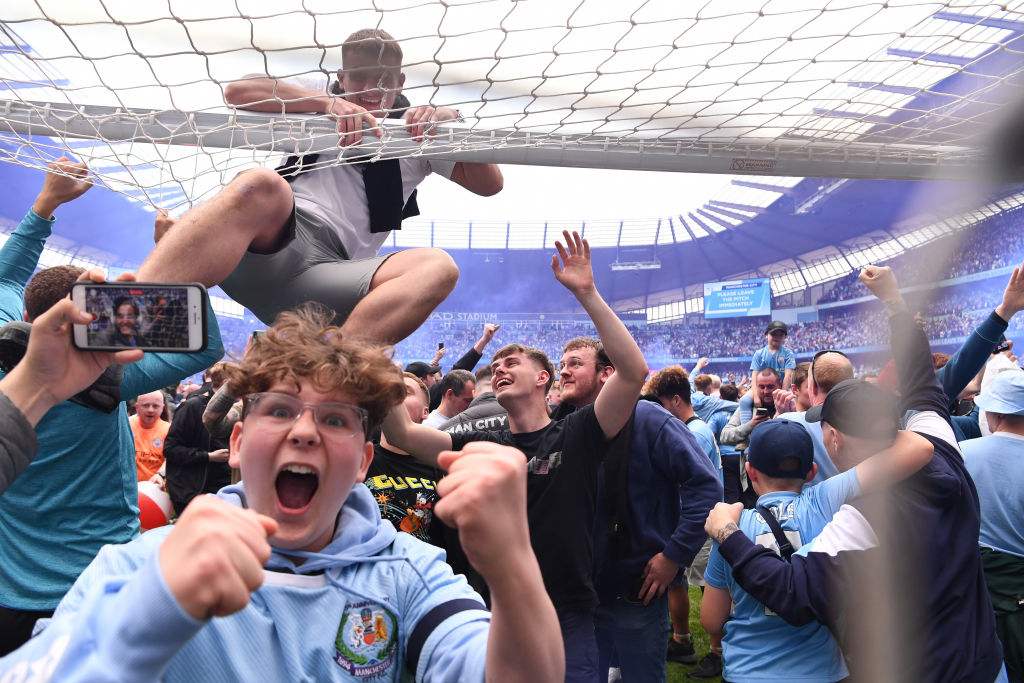No crackdown needed to halt spate of pitch invasions, says football crowd expert

Football authorities should resist pressure to implement tougher crowd control measures following a spate of pitch invasions, says a leading authority on fan disorder.
Crystal Palace manager Patrick Vieira called for current safeguards to be reviewed on Sunday after Aston Villa goalkeeper Robin Olsen alleged he was attacked by Manchester City fans who flooded onto the field to celebrate their Premier League title triumph.
Vieira himself tangled with an Everton supporter in the midst of similar scenes last week, 48 hours after Sheffield United’s Billy Sharp was headbutted by a Nottingham Forest supporter during another pitch invasion.
But the University of Manchester’s Professor Geoff Pearson, who has written extensively on policing of football crowds, says more draconian measures are not necessary.
He believes that recent instances of disorder are a hangover from the pandemic, which he says has caused short-term changes in fan behaviour and harmed good working relationships between police and supporter groups.
“It has been a highly unusual season because of the lockdown that preceded it. That’s had an impact on fan behaviour – there has been a slight upturn in disorder and antisocial behaviour at football,” Pearson told City A.M.
“We have seen a big turnover in fans, lots of new fans with access to tickets, and huge problems in terms of stewarding and security. Also, policing operations have been damaged by lockdown. All of that has led to incidents throughout the season.
“What we’re seeing here is the normal uptick that we get at the end of a season and it’s amplified by the nature of this season. Unfortunately it was highly predictable and hopefully it’s something that will calm down.
“Since Hillsborough we have generally policed football crowds by consent. That has been supported by the criminal offence of invading the pitch and football banning orders. I don’t think we need any additional measures. We need to establish what worked before the pandemic.”
Fans wanting selfies with players or to capture video for social media is a growing trend, says Pearson, but also a separate issue to disorder and one that can be targeted effectively.
Having effectively minimised hooliganism in the 1990s, the UK has seen football-related arrests decline steadily – they more than halved between 2010 and 2019.
“Remember that pre-2020 we were the envy of the world in how we managed crowds,” he added. “I don’t think we should throw the baby out with the bath water.”
The Premier League reminded clubs of its guidance on pitch invasions ahead of the weekend’s final round of games and said it would discuss fan disorder with the Football Association and English Football League during the close season.
“The Premier League is concerned about fan behaviour at grounds but recognises that reckless actions are carried out by a small minority of fans and the majority of supporters attend and watch matches in a safe and respectful way,” a spokesman said.
“The Premier League has encouraged clubs to remind supporters that it is illegal for them to enter the pitch at any time and may result in a criminal record and stadium bans.
“We will continue to discuss and address the ongoing issue of fan behaviour with The FA, EFL and other football partners ahead of the start of next season to ensure matches are safe environments for all.”
